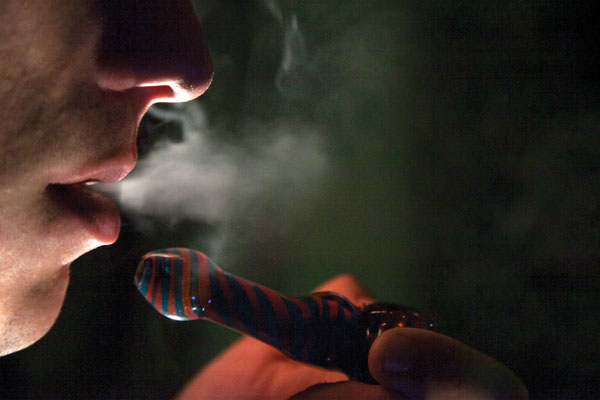
In Colorado and Washington, it’s recreational. In 16 other states, medicinal. But in Florida, marijuana is still unacceptable – for now.
New laws that acknowledge the benefits of medical marijuana, and even some that approve non-medical cannabis use, are becoming increasingly common.
When Washington passed its groundbreaking legislation, some experts estimated the state could gain $9 billion in tax revenue per year. Others suggest that demand for legalized weed could diminish as the novelty wears off, an effect known to economists as the “forbidden fruit.”
But financial potential aside, the perception of marijuana as a recreational or medical commodity has shifted. Polls show that the public’s eagerness to address legalization is higher than ever.
“There’s been a sea of change,” Rep. Earl Blumenauer (D-Oregon) said in an interview with The Atlantic. “I’m absolutely convinced that in the next four or five years, it’s going to pass the point of no return.”
Blumenauer’s statement reflects major support for new legislation, which has grown across social and party lines. The Miami Herald conducted a poll in January that said that 7 in 10 local voters are in favor of legalization. This could lead the government to consider options such as a tax-and-regulate measure that treats marijuana like alcohol.
On campus, the UM chapter of Students for Sensible Drug Policy (SSDP) advocates for more reasonable laws. Alfred Kilzi, president of SSDP, said that the club “doesn’t condemn or condone” drug use, but works on initiatives to better regulate marijuana, a Schedule 1 drug.
“I remember being told in D.A.R.E. that cannabis is just as bad as cocaine, heroin and other drugs,” Kilzi said. “But then in high school, the class president, AP students – a lot of those kids used cannabis. It’s disillusioning that we use our justice system as a weapon against these people.”
The federal government classifies Schedule 1 drugs as those with no recognized medical benefits but with a high potential for abuse. Teaming up with agencies like the Florida Cannabis Action Network (FLCAN) and People United for Medical Marijuana, SSDP aims to change this label on cannabis.
“There are really sick people in this state, some losing their sight and their senses, who will live through the next year if they can access medical marijuana,” said Jodi James, director of FLCAN.
Cannabis has been used in a pharmaceutical capacity to treat chronic muscle or joint pain, anxiety and neurological diseases like multiple sclerosis.
But broad language of previous bills has hindered their progress and increased skepticism among voters and legislators. For example, voters are more comfortable with medical marijuana regulation when they know which specific ailments would be targeted for acceptable use.
Aside from the medical benefits, James and other Florida advocates take issue with the arrest rates for marijuana possession, and the use of government money to charge those individuals.
“It costs too much to prosecute adults [for possession],” James said. “And it’s not like we’re rehabilitating them or doing them any favors – we’re putting them into the criminal justice system.”
In some respects, cannabis could be considered equally or less dangerous than alcohol.
“The physiological effects of marijuana are less harmful than alcohol,” said Jan Sokol-Katz, a UM sociology professor. “It’s rare to get under the influence [of cannabis] and get into a fight, or a domestic assault.”
By that logic, Sokol-Katz is “saddened, but not surprised” that Florida’s HB1139/SB1250 fizzled when it reached the state senate this past March.
The proposed legislation, sponsored by Sen. Jeff Clemens (D-Lake Worth) and Rep. Katie Edwards (D-Plantation), would establish the “Cathy Jordan Medical Cannabis Act.” The bill’s namesake is a 63-year-old woman with amyotrophic lateral sclerosis, whose marijuana use erased the need for eight of her nine medications.
James said the bill hadn’t “risen in interest” before the senate session opened. However, FLCAN helped draft the medical marijuana provisions, and she feels “real faith” that significant reform is on the horizon for 2014.
“Hopefully, we will have a bill ready to begin the committee process by September,” James said. “And by the March 2014 session, I believe Florida will have medical marijuana legislation.”
Hannah McKool, a UM student from Texas whose opinion on drug policy has shifted, believes more tolerant laws could cause more problems than they solve.
“I agree with medical marijuana legalization, but I don’t think it’s necessary for recreational use,” McKool said. “It could lead to more abuse.”
SSPD member Nick Stevenson believes Florida has fallen behind the tide of states to reform their marijuana laws, but is optimistic that change is on the way.
“If the Florida government can at least start considering the welfare of people who actually need cannabis to function due to health problems, then I say we are definitely on the right track,” Stevenson said.





